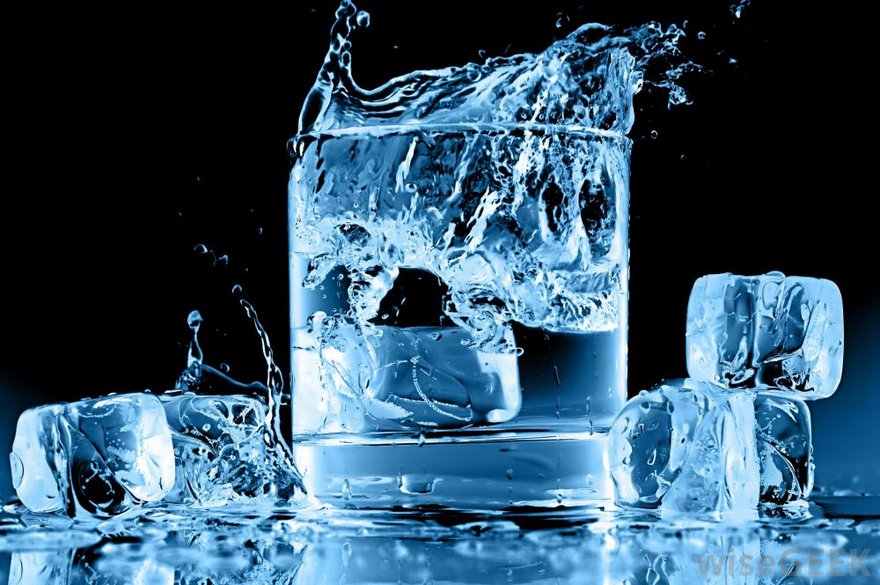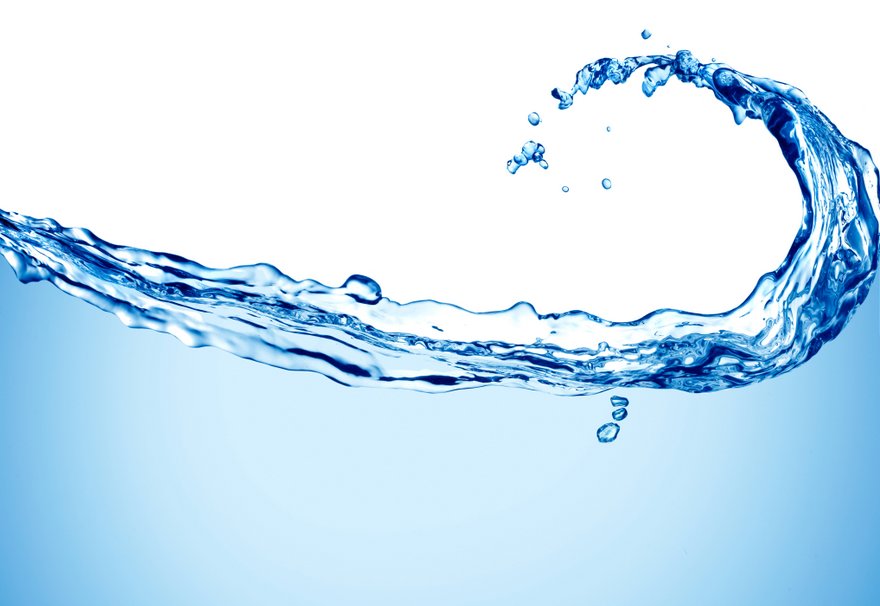Water gives us life and we all know how good it feels to quench our thirst with a nice tall glass of cool water. But is cool water always the best option? Or maybe there are occasions where we should opt for warm water?
Some experts speculate on what the best water temperature is to achieve optimal hydration. After all, our internal body temperature is 37.0 °C (98.6 °F) which is vastly different from that of a glass of cool water.
Ancient medicine systems such as Ayurveda, which originated in India more than 3,000 years ago and Traditional Chinese Medicine (TCM) both highlight the importance of temperature and its effects on the body. So it seems that there are certain occasions where warm water is more appropriate than cold!
[wp_ad_camp_1]
Whether cold or warm water – the most important thing is to stay hydrated and listen to your body. Our bodies have their own innate intelligence and often tell us what we need to know.
When you’re working out or the weather is hot outside, you’ll likely crave ice water. But when you’re sick with a cold you will be more inclined to want hot water. It’s still good to know the science behind the best times for cold vs. warm water!
Exercise
During exercise the core body temperature becomes elevated. Sweating is one mechanism that our bodies use to cool down, but we lose a lot of water and electrolytes which need to be replenished. Sipping on cold water during a workout both rehydrates the body of lost water and helps to cool down the core body temperature. A study done in the Journal of the International Society of Sports Nutrition compared room temperature water and cold water during workouts. Researchers found participants who consumed cold water were able to keep their core temperature down 50% longer than the group consuming room temperature water.
Fever
Drinking cold water when you have a fever is one method of cooling the body down. It’s important to keep super hydrated when you have a fever because you’re body is working hard to get rid of whatever foreign invaders may be causing you harm. When you’re overheated, drinking cold water can be a huge relief. Try squeezing some fresh lemon and adding a pinch of sea salt to help replenish lost electrolytes.
Weight Loss
Drinking cold water has been shown to boost metabolism and help burn an additional 70 calories per day. Though it’s no miracle obesity cure, it does add up over time. When you consider that a person of average weight (155 lbs) burns 70 calories going for a 15 minute walk, ice water starts to sound like a pretty simple and effective way to burn extra calories when you’re trying to lose weight.
Best Times to Drink Warm or Hot Water
Digestion
Ever wonder why most people consume a hot beverage upon rising? Yes caffeine has something to do with it, but that’s not the only reason. Ayurvedic medicine states that drinking warm water in the morning helps to stimulate digestion. Susan E. Brown, PhD also states that drinking cold water with a meal can have adverse effects on the digestive process. It requires more energy from the body to warm up cool liquids and foods, thus taking a longer time to digest and assimilate. Good to know for those of us suffering from digestive distress!
Detox
When it comes to cleansing the body of impurities, consuming adequate amounts of water is of paramount importance. Dr. Mark Hyman MD recommends drinking room temperature water with a squeeze of lemon. This requires the least amount of energy for your body to assimilate. The lemon also helps to stimulate digestion and flush toxins. During a detox you may want to add some cleansing additions to your water. Try adding some cucumber slices and fresh mint or slices of apple and a cinnamon stick (find here how to easily make your own flavored water for detox and weight loss). Not only will you find keeping hydrated more enjoyable, you’ll also be receiving the cleansing benefits these foods have to offer.
Pain Relief
Warm or hot water is better to consume if you are dealing with a headache or inflammation. Because warm water helps stimulate blood flow to the tissues it’s an excellent remedy for treating menstrual cramps.
Constipation
Drinking warm water when you’re constipated can help to move things along. The main cause of constipation is dehydration, so it’s essential to consume extra amounts of liquids. Warm water helps to stimulate blood flow and has a more soothing effect in the intestines than cold water.
What the Ancient Medicine Say About Water Temperature
Traditional Chinese Medicine (TCM) doctors have advised against drinking cold water for thousands of years. The logic behind this premise is that cold water has the overall effect of contracting, slowing and shrinking. Warm water helps to keep everything fluid, protects the internal organs and increases healthy blood flow and circulation.
Ayurveda has a similar stand point and doesn’t recommend cold water for the same reasons. Keep in mind these are very old systems of medicine. When these systems were put in place, people weren’t typically worried about losing weight. They were more concerned about how to preserve energy. However, in most cases these ancient medicine systems are time tested and have withstood the medical trends that we see come and go. In regards to healthy digestion and maintaining high energy levels it is probably better to drink room temperature or warm water.
The Rest of the Time
Aside from the circumstances listed above, the consensus from a broad spectrum of health professionals is to stick with room temperature water. Always take into the consideration what the temperature is outside. On a hot day, drink cold water, on a cold winter morning you will probably want to opt for hot or warm water. Drinking warm water in the morning is a great way to stimulate digestion and get the blood flowing to increase energy, and it’s also detoxifying. Adding citrus or herbs to your water can make it more enjoyable if you don’t like the taste. Many people stick to cold water because it tastes better, but room temperature water can be just as enjoyable. Remember to listen to your body, often it is the best health authority.
Source: www.healthyandnaturalworld.com












VERY USEFUL INFORMATION.
Thanks for good information about right way to dring water
Very informative article. Love to read more.
thanks for the information about cold ,warm & hot water.
If u r very very thirsty drink warm or hot water to quench the thirst quickly.
Very informative & Useful article
Though we know the Importence of drinking water we may not take the required quantity. Nice article
Very very useful article Every body should read and benifit
Highly informative and useful.
The comparative advantages of drinking hot and cold water are lucidly brought out highlighting medicinal and health imperatives the human body craves.
As a water consultant/counsellor of several decades standing I full appreciate the value of water in medicine and welcome your post on the topic of the best water temperature for potability. Many people in community outreach need to know this!
Water is known as ” The Elixir of Life ” .Pure , clear pristine water is now-a-days a difficult thing to come by. Saving our nature from pollution can provide us better quality of water . Rain water harvesting can recharge our water table and be a better option to save qualitative water from flowing into the drains
thanks a lot for such wonderful and useful information.
Useful information. Thanks
Nice Info.
When to use warm water, cold water and normal room temperature water is clearly communicated
It is educative
valuable information , TNX .
we prefer to drink hot water always.
Good analytical information. Should be included clay pots (मटका) water which is used in maximum house hold in India
Some times we wonder what is so important to know whether to drink cold water or warm water. well, it makes all the difference. The article has very well substanciated the uses of drinking warm water on scientific facts. I have been drinking only boiled warm water since many years. I feel I am getting all the benefits of drinking warm water as enumerated in the article. Most important benefits I am enjoying are good digestion and no constipation. I find, drinking warm water, also keeps my throat clear. I remember my elders asking for a glass of warm water when ever they had heavy meals. Some people may not like the taste of warm water. But, then, it is a matter of practice and try to like it.
verygood
Very good and useful info
India Divine is doing a great job of passing on this time tested, very useful information to the present generation and hopefully we will pass it on to the future generation. Thank you very much and all the best.
very useful information to all
Great post, well said. Thank you
the choice of water hot or cold is the like of the people living in various climatic and bodily status. Our vedas have great deal of information on Waters. there is divinity presiding them and so the same is taking care. in conclusion RV say apohi tha mayobhuva taqna urge dadhatana and it is for provinding great happiness to life(mahe ranaya cakshase) there is no substitute to its benefits(sivatamo rasah). thanks for the brief knowledge on waters.